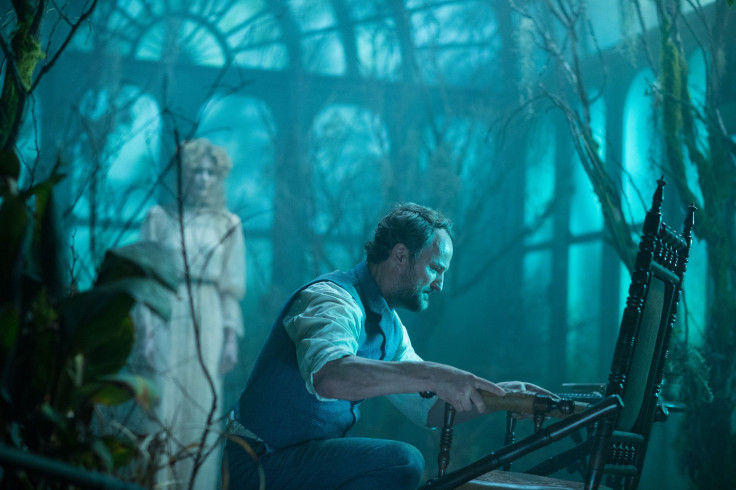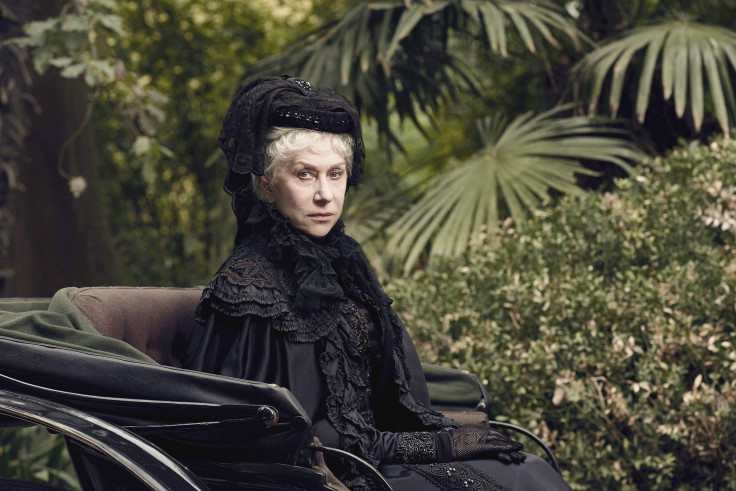Winchester is about the eponymous Mystery House in San Jose, Calif., a mansion built by Sarah Winchester, widow of William Winchester, the big-time gun boy. After speaking to a spiritualist, Sarah Winchester began endlessly expanding the mansion, purportedly to house the ghosts of restless spirits killed by the rifles underlying her fortune. Everyone knows Sarah Winchester was crazy; what Winchester presupposes is… maybe she wasn’t?
But Winchester doesn’t really star Sarah Winchester, it stars the troubled doctor sent by the Winchester Repeating Arms Company to evaluate her sanity. Which means Winchester stars a skeptic, one of the worst character types in horror movies. Skeptics have to be convinced of things the audience already takes for granted. They may seem superficially reasonable characters by real-world logic, but it can be rankling waiting for them to catch up. Sometimes, when a character takes too long to simply believe their damn spouse or child — the ghosts aren’t in their imagination! — you just want to grab their hand and yank ‘em forward through the plot. But Winchester does a nice job with Dr. Eric Price (Jason Clarke) by rooting his skepticism in self-doubt, instead of in the assertions of someone else. For you see, Dr. Price is an opium fiend and won’t believe his own eyes or accept the repeated jump scares he suffers from tormented, gunned-down spirits. This way, we get to have our ghosts and eat them too, with Price’s move from skepticism to faith becoming more of a character development than a plot impediment.

No matter how charming Price may be in his laudanum-slurping slovenliness, the characters still feels a bit like a middle-man between us and the unbending Mrs. Winchester (Helen Mirren). Her story, the story , is much more interesting than Price’s whiny, dead wife routine. And Sarah’s plan, to either provide peace or lock up angry spirits, would have been interesting to see in its developmental stages. The sheer monomania of it — the ornateness of her automatic writing, her architecture, her visions — could have made for something like a ghost-flavored There Will Be Blood. Instead, we enter her story in-progress, the widow Winchester reduced to the spooky medium who aids Price in finding his own absolution. It’s not bad, necessarily — it’s hard to complain when it’s Jason Clarke and Helen Mirren bouncing off each other — but it does feel like a missed opportunity. Here’s one trope, the wise, old woman spiritualist (Insidious, Poltergeist), that would have been better subverted.
That’s pretty characteristic of Winchester, a movie built of familiar but well-polished fixtures. The architectural eccentricities of the Winchester Mansion itself — stairs leading nowhere, doors that open to nothing, secret passageways — are used effectively, but only to immediate ends. Winchester isn’t a movie building a claustrophobic, horror-choked atmosphere like The Haunting or The Legend of Hell House. Instead, it’s all funhouse: lots of loud noises, vague shapes moving in front of the camera, creepy kids, and spooks jumping up behind keyholes or from around corners. The Spierig Brothers (Daybreakers, Jigsaw) are experienced enough at composing scares to have an almost predictable unpredictability: when a scary chair looks certain to seat a scary ghost, Winchester dances right up to the reveal, then up pops the scary face from somewhere else you didn’t expect.
There is one area where Winchester feels surprisingly innovative: its use of guns. With none of the intimacy of knives, guns are uncommon in horror movies, most often used to demonstrate their impotence against something supernatural, then discarded. But some of Winchester’s smartest, most effective moments use rifles in powerful, familiar, real-world ways. Echoes of school shootings and mass shootings are used to subtle and unnerving effect. And though it’s not an anti-gun polemic, Winchester situates the gun as America’s Original Sin, with slavery, war and genocide exploding from its barrel, leaving behind spiritual wounds that continue after death. More immediately, Winchester plays on the indeterminate terror of having a gun pointed your way. Will the bullet rip through the wall here... or... there, right by Sarah’s head? Will young master Henry pull the trigger?
Horror hounds will find Winchester familiar, but well worth their time. It’s as overstuffed as a Victorian chaise lounge, with fabulously textured costumes, stiff butlers and old-timey shit on the walls like at Max & Erma’s. Everybody speaks with that phony William F. Buckley accent and begins all their sentences with “It seems…” or “My good sir.” But there’s nothing too stuffy or stately about its constant jumps and yelps. And it’s rare to get such lush production design and talented actors in a by-the-numbers horror movie. Winchester is historical pulp and a tremendous amount of starched fun.


















